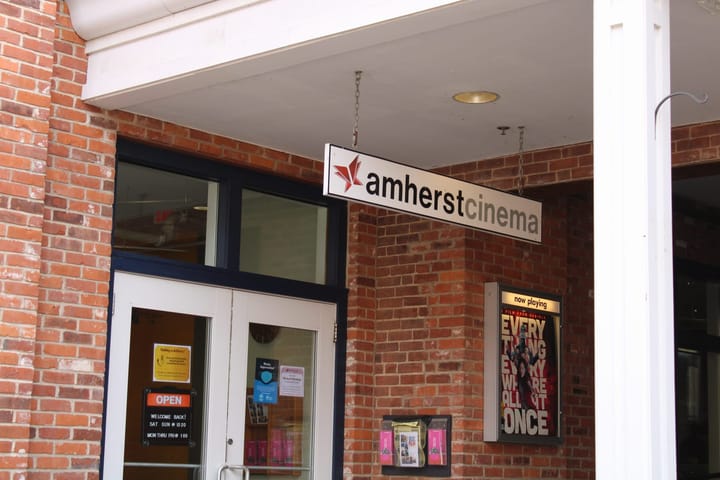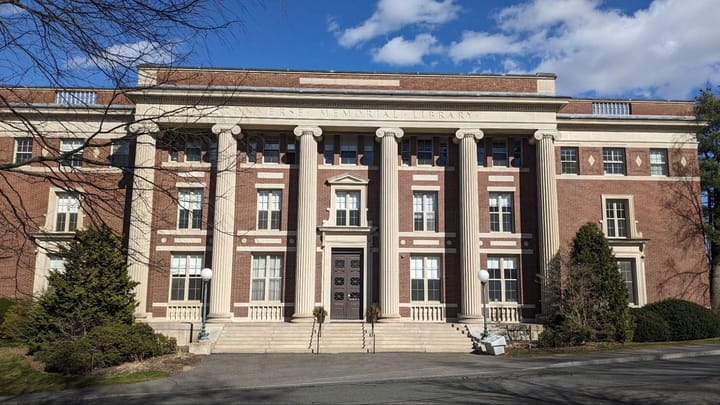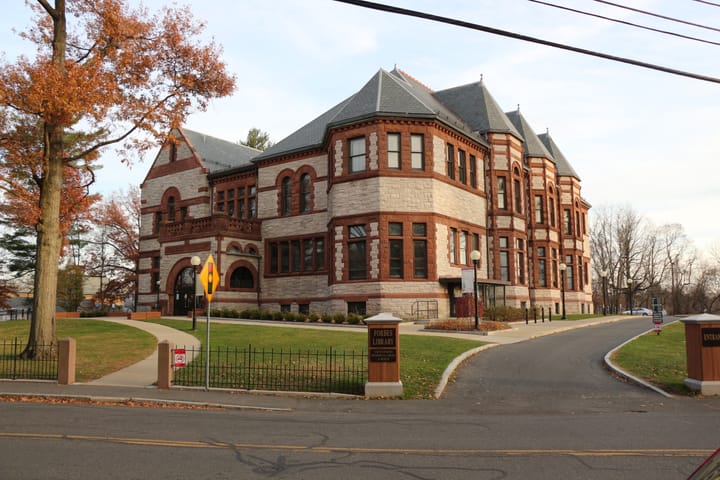Haggerty '82 inspires students to give back to their communities
“Consider this a recruiting pitch,” Haggerty slyly baited the freshmen, “because the world needs your help.” She suggested two distressingly overlooked areas of need: energy conservation and reintegrating released prisoners into society.
“Your presence at Amherst is a privilege,” Haggerty told the class of 2009. “Take advantage of it.” For Haggerty, the liberal arts education and sense of community that Amherst provides left an indelible imprint upon her view of the world. Her experiences at Amherst continually influence her work at Common Ground, an organization that provides housing and social services for the underprivileged in New York City.
“I trace my idealism and way of envisioning and guiding the ‘communities’ of our various buildings at Common Ground to my time at Amherst, and what I observed and absorbed of community life there,” Haggerty said during a personal interview with The Student. “I am also very conscious of the fact that my way of thinking about problems, constructing arguments and communicating information was shaped by my experiences in Amherst classrooms.”
According to Haggerty, the College fosters the critical and constructive thinking necessary to envision change-a necessary asset in becoming a social problem solver.
During her talk, Haggerty cited the example of Joseph H. Neesima, an 1874 graduate of the College, who became the first Japanese person to be educated in the West. He went on to found Doshisha University, the first university in Japan. Now one of Japan’s largest universities, it remains a community of learning much like Amherst. The notion of giving back to those in need influenced Haggerty’s vision of Common Ground.
In Common Ground’s formative stages, Haggerty envisioned a diverse community that brought artists together with those recovering from homelessness and coping with mental illness and HIV/AIDS. During her interview with The Student, Haggerty commented upon the pleasant atmosphere, undoubtedly reinforced by the all-inclusive services offered by the organization.
“It is pretty remarkable to see how comfortable tenants are with each other, and how friendly an atmosphere prevails,” she said. “In part, I think those who work in the creative fields may be more drawn to unique living environments than others, but we have many tenants working in lower wage jobs outside the arts, and they say they appreciate the affordability, convenient locations and physical attractiveness of our buildings.”
Haggerty’s lecture inspired her entire audience to think broadly about their own Amherst education. In his squad group, Pem Brown ’06 noted that “[the freshmen] have a nuanced understanding of privilege-their own and that of others. I am sure that this knowledge will help them be able to maximize the College’s resources during their four years here.”
Dean of the Faculty Greg Call echoed this sentiment. “I applaud the message that Rosanne and [President Anthony Marx] presented this evening, and I think it’s important to remember that with great privilege comes great responsibility,” he said.
A number of Amherst students have devoted their winter breaks and summers to volunteering at Common Ground, experiencing the impact of Haggerty’s work firsthand. Allyx Hadley ’06 and Jake Maguire ’07 recently interned for Common Ground’s Street-to-Home Initiative (S2Hi), one of the organization’s most esteemed programs. The goal of this program, Maguire said, is to prove that homelessness can be solved in a specific area; in this case, that area is Midtown Manhattan.
In the two years since its creation, S2Hi has succeeded in finding homes for almost 80 people, only five of whom have returned to the streets. Both Hadley and Maguire agreed that collaboration has been key for S2Hi’s success. S2Hi encompasses 23 service providers who work together to find homes and provide services for the homeless. An inter-agency database and monthly conference meetings enable the participating organizations to track their clients and better address their clients’ needs.
Hadley, who interned for S2Hi shortly after it was first launched, recalled blocking off an area in Midtown Manhattan at 4:30 a.m. and walking along the streets, counting and mapping homeless people.
Maguire’s primary responsibilities included compiling roughly 40 pages worth of material about S2Hi that other organizations will use to replicate the program in their own cities. He also coordinated a comprehensive services fair for the homeless that will take place in early September. Maguire stressed society’s responsibility to lend support to the underprivileged. “If we have the resources to meet someone’s needs and we don’t, then we are complicit in their suffering,” he said.
Yet, his experiences at Common Ground convinced him that homelessness is a problem that can be solved. “Homelessness is a catch-all. It is the end result of a slew of other problems, and it serves to exacerbate those problems 10-fold,” he said. With a small amount of hand-holding, though, these folks can be put in positions where they can really improve their lives and be taken off the streets.”





Comments ()